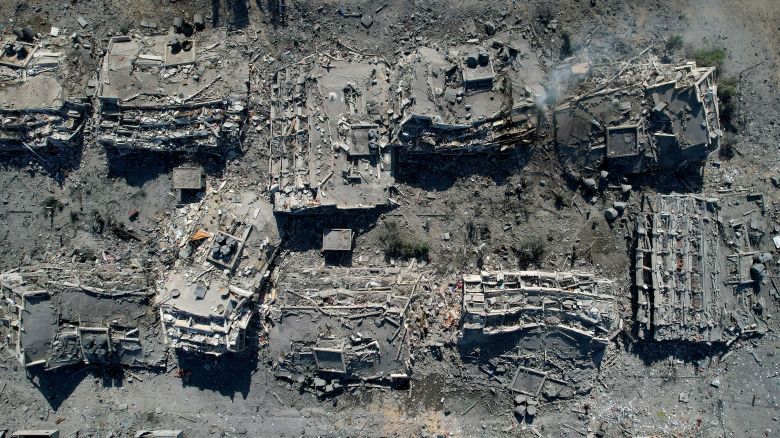The war between Israel and Hamas has already spilled into neighboring countries in the form of street protests and even cross-border strikes.
Why it matters: Israel’s neighbors fear the prospect of further domestic unrest and a massive influx of refugees as the conflict deepens. Israel, meanwhile, fears that a second front could open on the border with Lebanon.
What’s happening: Each of the bordering countries has already been pulled into the conflict in some way.
Lebanon
If a second front is to open in the Israel-Hamas war, it will likely be on the border between Israel and Lebanon.
- There have been daily skirmishes along the border, with Iran-backed Hezbollah militants in Lebanon firing dozens of rockets and the Israel Defense Forces conducting strikes of its own. At least three Lebanese citizens and one Israeli citizen have been killed along with several Israeli soldiers and Hezbollah militants.
- Hezbollah has pledged its support to Hamas and has far greater military capability than the Palestinian militant group.
- The White House has discussed using military force if Hezbollah joins the fighting in Gaza.
Meanwhile, large pro-Palestinian demonstrations have been held in Beirut, including one on Wednesday night outside the U.S. Embassy in which Lebanese security forces used tear gas and water cannons to disperse.
Egypt
Egypt has long served as a mediator between the Israelis and Palestinians. It shares a border with Gaza and was the first Arab country to recognize the state of Israel.
- The Rafah Crossing between Egypt and Gaza — the only entry and exit point for civilians in Gaza — has been closed since the start of the conflict. Israeli airstrikes also hit the crossing in the days after Hamas’ terror attack on Oct. 7.
- This week, President Biden successfully lobbied Egypt and Israel to agree to allow humanitarian aid into Gaza via the crossing. The first aid trucks began passing through into Gaza on Saturday.
- Egypt has refused to open the fortified border to let refugees out. President Abdel Fattah al-Sisi has also said he doesn’t want to risk letting in militants alongside civilians.
Jordan
Jordan — which already has a large Palestinian population — also says it will not allow in additional refugees.
- Like Egypt, Jordan fears that additional large outflows of Palestinians will undermine the demand for Palestinian statehood — a cause to which Jordan and most of its residents are committed.
- There have been pro-Palestinian protests outside the Israeli Embassy in Amman since the conflict began, including after the blast at a hospital in Gaza.
- Jordan’s King Abdullah swiftly condemned Israel for the hospital explosion and canceled a planned four-way summit with Biden, Sisi and Palestinian President Mahmoud Abbas. The U.S. now says it does not appear that Israel was responsible for that explosion.
Syria
Syria fired artillery into Israeli territory and Israel fired back a few days after the Hamas attack.
According to Syria, Israel dropped bombs on airports in the Syrian cities of Damascus and Aleppo soon after the conflict began, closing them down.
- The strikes were intended to disrupt the flow of Iranian supplies and weapons into Syria, Reuters reports.
- Meanwhile, U.S. military base in Syria came under a drone attack on Thursday, U.S. officials told AP, without naming a culprit. U.S. forces were targeted in similar attacks in Iraq, in a sign of the potential for regional escalation.


